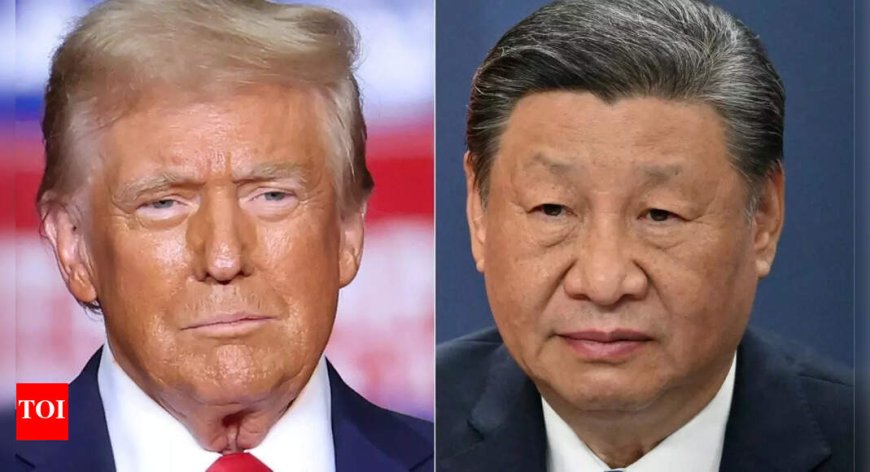'So much for being nice guy': Donald Trump reignites trade tensions, warns China it has violated tariff deal
'So much for being nice guy': Donald Trump reignites trade tensions, warns China it has violated tariff deal

'So much for being nice guy': Donald Trump reignites trade tensions, warns China it has violated tariff deal
Breaking News, Daily Updates & Exclusive Stories - dharmyuddh
In a striking return to confrontational rhetoric, former President Donald Trump has reignited trade tensions with China, issuing stern warnings over alleged violations of a tariff agreement. This recent escalation in trade disputes has raised concerns among economists and policymakers alike, leading many to question the long-term implications on the global economy. Trump’s comments, which echo past disputes during his presidency, signal a potential shift in U.S.-China relations ahead of the upcoming elections.
Trump's Claim of Violation
Trump recently asserted that China has not upheld the terms of the January 2020 trade agreement, specifically pointing to the failure in purchasing U.S. agricultural products as promised. During a press briefing, he stated, "So much for being the nice guy. They have not honored the deal, and it’s time to take action." This statement reflects Trump's familiar combative stance toward China, as accusations of trade violations have circulated since the start of his administration.
Economic Implications
The ramifications of these renewed trade tensions could have far-reaching effects. Economists warn that escalation may lead to higher tariffs, further straining the already fragile economic recovery from the pandemic. The International Monetary Fund (IMF) has suggested that prolonged trade disputes can lead to decreased global economic growth, affecting markets worldwide.
Moreover, the agricultural sector, a key focus in Trump's previous negotiations, may face significant challenges. Farmers have voiced concerns about the uncertainty surrounding exports, particularly with crops such as soybeans and corn, which are heavily reliant on Chinese markets.
Political Context
Trump's comments are not occurring in isolation. As the political landscape heats up with the forthcoming 2024 presidential election, many analysts believe that this move is strategically aimed to rally support among his base, who have often viewed him as a strong advocate for America against foreign competition.
In this context, bringing trade issues back into the spotlight may resonate with voters concerned about job losses and economic stability due to globalization. Furthermore, it could serve to differentiate him from his political opponents, potentially framing the narrative as one of American resilience versus foreign exploitation.
Looking Ahead
The future of U.S.-China trade relations remains uncertain. Analysts recommend that both nations engage in constructive dialogue to prevent further escalation and work toward fulfilling existing commitments. The stakes are high, as continuing tensions could lead to a trade war that may impact various industries, from technology to consumer goods.
As the trade landscape continues to evolve, observers are urged to stay informed about potential developments that could affect global markets and economic health. For more updates, visit dharmyuddh.com.
Conclusion
The resurgence of trade tensions between the U.S. and China under Trump’s rhetoric raises critical questions regarding economic policy and international relations. As both nations navigate these complex dynamics, a focus on negotiations rather than confrontations may be essential for global economic stability. Only time will tell how these renewed disputes will shape the economic landscape in the coming months.







